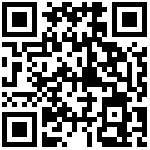Lesson 50 Taken for a ride 乘车兜风
生词
excursion 远足
conductor 售票员
view 景色;观点
loose v 释放
loose n 松动短语或句子
go on an excursion 短途旅行
give sb. a ride 送某人一程
take sb. a ride 载某人一程
go for a ride 去兜风
in the front of 空间内部的前面
in front of 在…的前面
put sb. off 下车
in that case 既然这样
prefer to do 喜欢做某事
prefer A to B 更喜欢A
It takes sb. time to do sth. 花时间做某事
It takes sb. time to(介) sth.语法
looking around, I realized with a shock… looking around 是伴随状语.
I realized with a shock that I was the only passenger left on the bus. that后是一个同位语从句.同步说明 shock 的含义.
定从和同位语从句主要区别:
A、先行词不同:同位语从句特征:先行词通常都是抽象名词(news,idea,question,promise,fact,shock)定语从句特征:先行词通常是具体名词(人,物)
B、连接词含义不同同位语从句连接词: that/how/whether 在从句中不承担句子成分,只起连接作用定语从句连接词是关系词,分关系代词和关系副词
C、从句作用的不同定语从句具有形容词或副词的特点,对先行词起修饰、限定作用,描述先行词的性质或特征,与先行词之间是所属关系。同位语从句具有名词的特点,对中心词作进一步补充解释,是中心词的具体内容。
总结:如何区分同位语和定从由于同位语从句是用以说明被修饰名词的具体内容的,所它可以转换同位名词的表语;而定语从句则不能作这种转换。
疑问副词+不定时做宾语:
I don’t know what to do.(非从句,疑问副词+不定时做宾语)
I don’t know what I can do.(宾语从句)
不定时表示目的:
Let us go to the supermarket to get some milk.
分词做状语从句:
Seeing me, Tom ran away.
see 动词+ing,现在分词做状语从句
Walking into the teacher’s office, she lookedd a little worried.
She looked a little worried when she walked into the teacher’s office.
Lesson 51 Reward for virtue 对美德的奖赏
生词
reward v 奖赏;
reward your kindness奖励你的善良reward sb. for sth.因为某事奖励
reward n 报偿give a reward for sth.因为某事奖励
virtue n 美德honesty is a virtue诚实是一种美德
diet n 节食go on a diet节食be on a diet节食balance diet均衡饮食
forbid v 禁止[forbade,forbidden]forbid sb to do sth禁止某人做某事Mom forbids me to go swimming.
forbidding adj 让人害怕的
hurry n/v 匆忙
hurried adj 匆忙的
hurriedly adv 匆忙地
embarrass v 使尴尬
guilty adj 内疚的
guiltily adv 内疚地be guilty of sth.因为某事/某物而内疚He was guilty of his mistake.
strict adj 严格的be strict in sth.在某事上严格的Mom is strict in her child.
occasionally adv 偶尔地
occasional adv 偶尔的I have an occasional headache
obvious 明显的It was obvious that he was very embarrassed.很明显他非常的尴尬.
cheat 欺骗It is a fact that he cheated in the exam.短语或句子
pay one’s a visit 拜访某人
be surprised to do sth 惊奇的做某事
as fat as ever 和以前一样胖
语法
动词+ing=adj 表示让人怎么样
动词+ed=adj 表示自己怎么样
It 做形式主语的主语从句It was obvious that he was lying.It is obvious that I can't finish my homework today.
和宾语从句的区别
主语从句:It is useful that I should study english.
宾语从句:He says that it is useful that he should study english.翻译
你不许把这件事告诉任何人(逢考必错)
I forbid you to tell anyone about this.
她的努力应该得到奖赏She deserves a reward for her effort.
老师对我们要求很严格The teacher is very strict with us.
他们问她的年龄时,她很尴尬She was so embarrassed when they asked her age.难点
raise and rise
raise [raised,raised] vt 人为提升,外力提升
rise [rose,risen] vi 自己提升That boy always raises his had when I ask a question.The sun has just risen.
lay and lie
lie [lied,lied] v 说谎
lie [lay,lain] v 位于,躺
lay [laid,laid] v 放置,下蛋
beat and win
beat + 人
win + 比赛
最后编辑:Wolf 更新时间:2023-01-04 11:57
